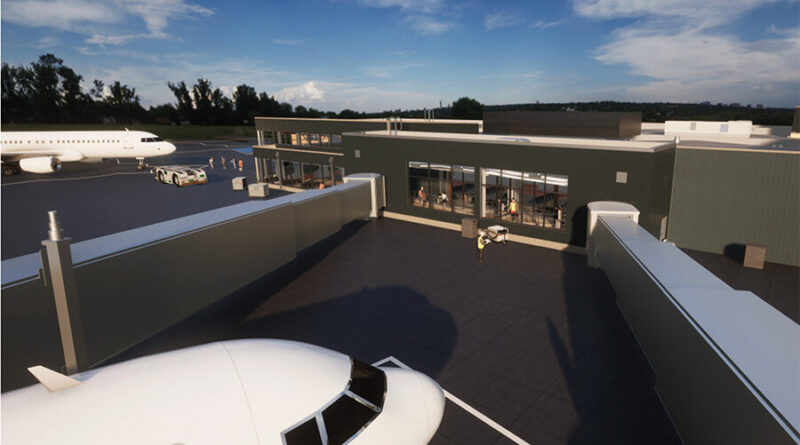Richland firm lands $13M contract for airport expansion
The cost of the first phase of the Tri-Cities Airport’s next expansion will be more affordable than estimated.
Port of Pasco commissioners unanimously agreed during their April 23 meeting to award the project to Richland-based Fowler Construction for just over $13 million. The primary portion of the project includes expansion of the baggage area for outbound baggage and improvements at two gates.
Fowler also will build three jet bridges at Gates 2 and 5 as part of the project.
The cost of the project came in roughly $10 million below what was estimated by a project engineer.
Airport Director Buck Taft told port commissioners he was happy with costs being lower but frustrated that the airport spent so much time and resources securing additional funding for the project based on the engineer’s estimate.
“It really did impact things we could have done sooner,” he told commissioners during the meeting.
The port, which owns and operates the airport, announced the four-phase terminal expansion in April 2024. Beyond the initial construction phase, it will add ticket counters, new gates and a separate rental car building over the next 10 years.
The work will be funded by a combination of airport user fees, federal grants and facility charges.
The first phase, which will break ground in the coming weeks, will create minimal, if any, disruptions for passengers. It’s expected to be completed in 2026.
Mead and Hunt of Portland, Oregon, is the architect for the project.
Five other contractors bid on the project along with Fowler, which is also building a new hotel near the airport for hotelier A-1 Hospitality. All the bids came in within a $4 million range and far below the engineer’s estimate of $23 million.
Taft said he is pressing the project engineer for reasons why the project estimate was so far above bids. Given that the airport expansion has four phases with a projected price tag from $120 million to $145 million, he said it’s crucial that the port be able to efficiently dedicate energy and resources to complete the projects.
“If we’d known this was a $13 million project, we could have done other things or made other plans,” he told commissioners.
In the end, though, Taft said it is good news. Now he and his staff are determining when the $11 million in grants for the project will be in hand and then start working on the next phase.
The project is the first of four phases that the airport has planned for the next 10 years at an estimated cost of $120 million to $145 million. However, the ability to stick to that timeline will depend on various factors.

